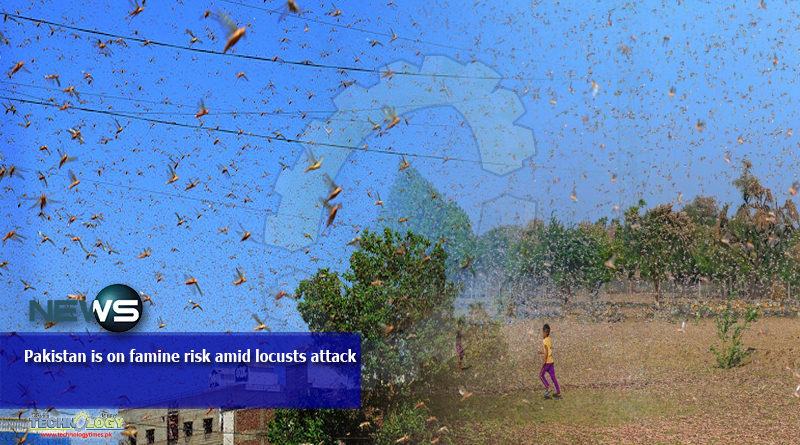Still reeling from the impact of the coronavirus pandemic, another severe crisis is staring at Pakistan and India, one with the potential to impact their food securityand is bringing famine risk.

Swarms of locusts – short-horned grasshoppers – have invaded agricultural fields in both countries decimating crops and risking famine in the region. In Pakistan, hopper bands of the Schistocerca gregaria – commonly known as the desert locust – have already devoured large quantities of crops in over 60 districts of all the provinces. The locusts are believed to have entered into the southwestern Balochistan province, from neighboring Iran now every country is on famine risk.
These insects, mainly originating from deserts, eat anything from bark to seeds and flowers while traveling up to a speed of 93.2 miles (149 km) a day. The region saw the first wave of locust invasion in May last year since 1993. According to the UN Food and Agriculture Organisation (FAO), Pakistan’s 38% of agricultural fields are breeding grounds for the insects.
Out of which, 60% locusts breed in Balochistan alone – the country’s poorest province, followed by southern Sindh, 25%, and northeastern Punjab – the most populous province, 15%.
The UN agency said the locusts may have caused financial loss worth Rs600 billion ($3.72 billion). In India, swarms of locusts, invading agricultural fields in the northwest, are destroying seasonal crops.
These locusts are not stationary. They have no border restrictions. Therefore, if the two sides keep on (politically) cornering each other and do not act briskly under a joint plan against this onslaught, the people of both countries will have to suffer irrespective of nationality or religion,” he cautioned.
Speaking to Anadolu Agency, a senior Pakistani government official on condition of anonymity said officials concerned from Pakistan, Iran, and India were in constant touch and updating each other with the latest situation on a daily basis.
